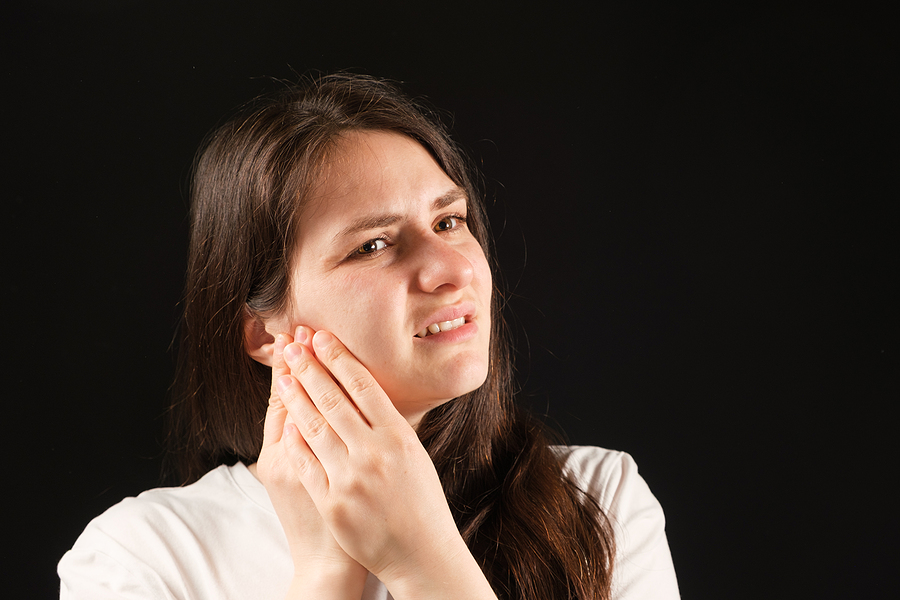Sudden Tooth Pain? Here’s What Might Be Causing It

Sudden Tooth Pain? Here’s What Might Be Causing It
Teeth are very strong, but they are not indestructible. The enamel on our teeth is the hardest substance in the human body, but that doesn't mean that your teeth can stand up to all kinds of abuse. Here are some of the common causes of toothache.
Temperature sensitivity
Your teeth are protected by strong enamel that can withstand wear and tear from eating and chewing. However, the teeth aren't completely immune to temperature extremes. Hot and cold food and beverages can cause your tooth's enamel to expand and contract, leaving your teeth vulnerable to chips, cracks, fractures, and other damage.
Temperature-sensitive teeth are prone to developing sharp pain when exposed to extreme temperatures. The pain typically occurs when consuming hot or cold food or beverages but can also occur with exposure to cool air.
Gum recession
Receding gums can cause sensitive teeth as the roots of the teeth become exposed and prone to temperature changes and pressure. We recommend treating receding gums as soon as possible because advanced gum recession leads to loose teeth and cavities.
Erosion
Are you experiencing sudden tooth pain? Have you recently noticed some damage to your enamel? You may be suffering from erosion!
Erosion is the loss of tooth enamel caused by acidic attacks on your teeth and gums. The acids can come from a number of sources – diet, drinks like coffee, tea, soda, and wine and even certain medications can cause acid to damage your teeth. Without the protection of enamel, the sensitive roots of teeth become exposed and are at risk for cavities or even infection. Over time, this can lead to a host of problems, including tooth loss and jawbone degeneration.
Cavity
A cavity is essentially an area of decay that's formed on the enamel of the teeth due to a combination of factors. It can develop in an existing filling or crack and leak into the interior of the tooth, where bacteria can easily grow and multiply.
Gum infection
If you're experiencing sudden tooth pain, then it could be due to a gum infection. The gum tissue could become inflamed, and that inflammation could travel to the tooth root, causing you to feel tooth pain. Infections of the gums usually occur due to plaque buildup on your gums. Plaque is a sticky substance that's made up of food particles and bacteria in your mouth. When you don't brush and floss your teeth enough, the plaque will build up and turn into tartar if it's not removed properly. While you may not be able to remove all of it yourself, you can take steps to prevent plaque buildup. Make sure you're brushing twice a day for two minutes each time and flossing once a day, as well. Additionally, visit your dentist at least twice a year for regular checkups and professional cleanings. You can avoid tooth pain and tooth loss by practicing good oral hygiene habits.
Cracked tooth or crown
Another most likely cause of sudden tooth pain is a cracked tooth or crown. This can happen when you bite down on something hard, like nuts or ice chips. Your teeth can crack due to a disease process such as pericoronitis, which causes an infection of the gums surrounding your wisdom teeth. This is often found in older patients. Food particles lodged under your gumline can also irritate and inflame it.
Sinus infection
The sinuses are hollow cavities behind your cheeks and foreheads that drain mucus from your nasal passages. If there's a sinus infection, excess mucus can build up in your sinus cavities and cause pressure and pain around your upper teeth.
Since the roots of the upper teeth are very close to your maxillary sinuses, the inflammation caused by an infection can also irritate those roots. This can cause you to feel pain when you bite down. The pressure can also be felt around your teeth and inside your cheeks as the pain radiates outward.
Jaw clenching
If you clench your jaw and grind your teeth at night, this can cause pain in the teeth or the jaw joint. This pain can occur suddenly because grinding can eventually wear down the surface of the teeth. Sometimes the pain subsides as you fall asleep, only to return when you wake up the following morning. In this case, a night guard may help ease the discomfort and prevent further damage to the mouth. Talk to your dentist about a bite splint that you wear to bed so you do not damage your teeth while you sleep.
To learn more, please schedule an appointment online or call us at (480) 838-8558 and have a consultation with Dr. Christopher Payne. We will be happy to help.
Office Hours
MON7:00 am - 4:00 pm
TUE7:00 am - 4:00 pm
WED7:00 am - 4:00 pm
THU7:00 am - 3:00 pm
FRIClosed
SATClosed
SUNClosed





















comments